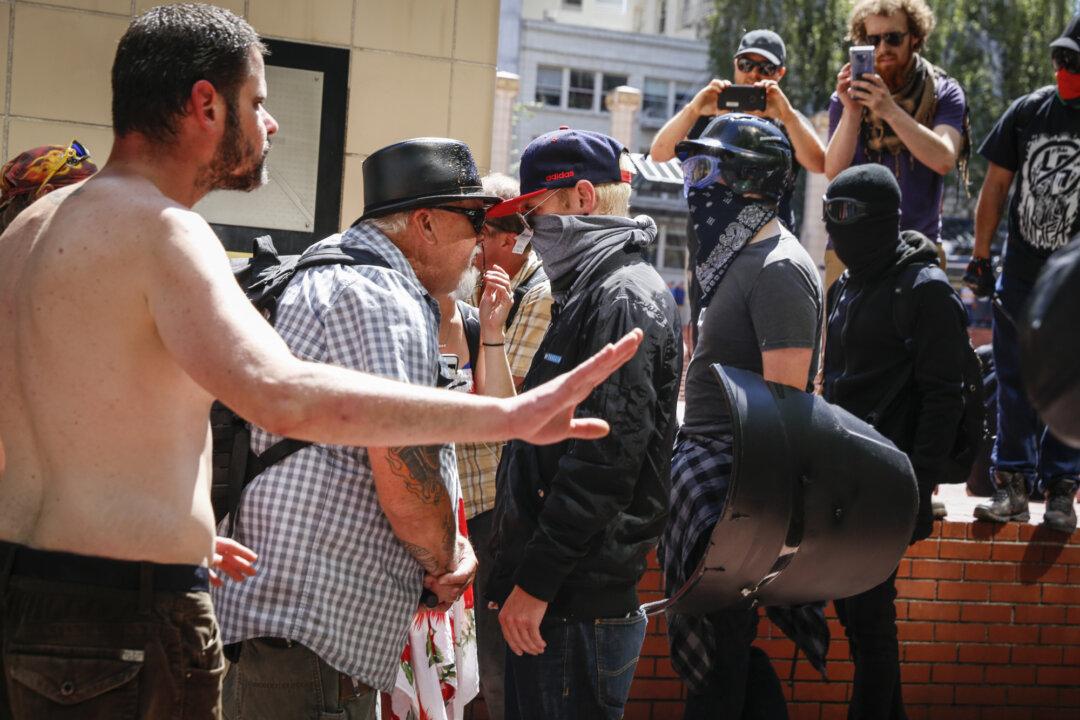After the Antifa extremist group was caught on video assaulting at least three people over the weekend in Portland, Oregon, the police chief there called for a law that would ban masks.
Antifa, a far-left group that openly advocates violence, was seen on June 30 beating journalist Andy Ngo as well as two other men. Ngo said he suffered a brain hemorrhage. Three people were arrested and five suspects are being sought.





